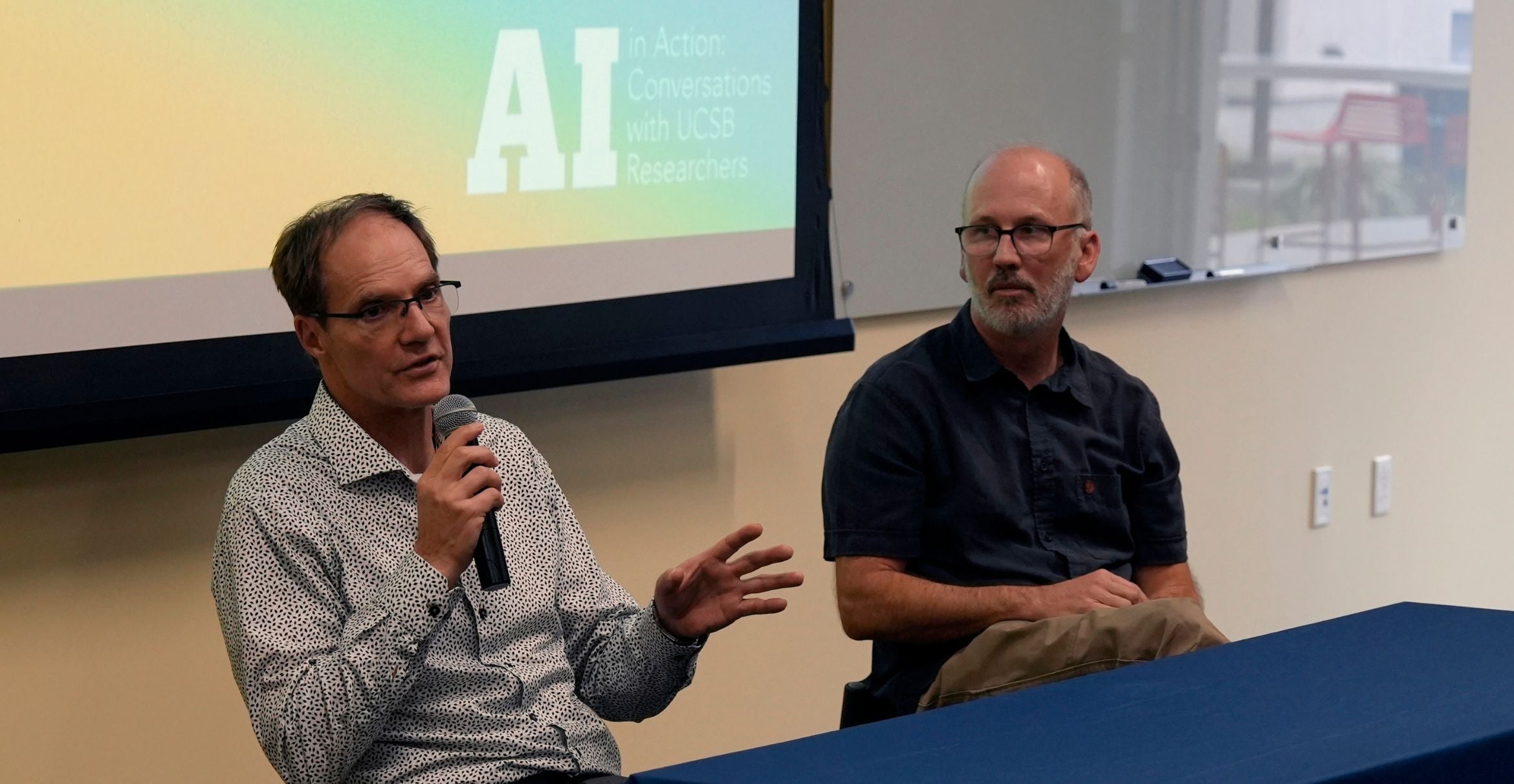
Winning NIH’s Biggest Award
UC Santa Barbara’s Denise Montell is the recipient of a 2014 Pioneer Award from the National Institutes of Health (NIH). The annual award recognizes a select group of scientists whose bold and innovative “pioneering” approaches have the potential to make an unusually high impact on a broad area of biomedical or behavioral research.
“I was thrilled to learn that Denise Montell received NIH’s most prestigious Pioneer Award,” said UCSB Chancellor Henry T. Yang. “This extraordinary award not only honors her but also honors our institution, which makes all of us at UCSB proud.”
Montell, the Duggan Professor of Molecular, Cellular and Developmental Biology, and her research team define and solve fundamental questions in cell and developmental biology using fruit fly (Drosophila melanogaster) genetics, mammalian cell culture and state-of-the-art imaging approaches. Her team and their collaborators recently discovered a surprising reversibility of the cell suicide process known as apoptosis. Cells that have progressed beyond steps previously considered to be points of no return can reverse the dying process, recover and go on to proliferate. Depending on the circumstances, this has the potential for significant consequences, both positive and negative.
“The Pioneer Award is designed to support researchers who have shown the potential for making discoveries that could transform an area of medical research,” said Vice Chancellor for Research Michael Witherell. “This is an extraordinary honor for Denise Montell and for the University of California.”
Currently, Montell’s lab is investigating whether the ability of cells to return from the brink of death — a process they refer to as anastasis (from the Greek meaning “rising to life”) — is a mechanism by which cancers develop. One of Montell’s initial major goals is to build a biosensor that can allow the detection of anastasis events in human cancer cells.
Researchers in Montell’s lab have designed and tested a similar in vivo biosensor in fruit flies and now propose to carry out whole genome sequencing of fruit flies derived from cells that have undergone anastasis. They would like to determine if these flies have more mutations than do their siblings whose germ cells have not undergone this process. Montell hopes her research will ascertain whether this process might accelerate evolution by natural selection.
“The notion of stress-induced mutagenesis is something that is known in bacteria and in yeast, but it hasn’t really been described in multicellular organisms before,” Montell said. “So we’re going to take the great, good fortune of this big award and try to figure out whether this is a cause of cancer. Is anastasis also what allows some cells to bounce back from chemotherapy, evolve drug resistance and cause relapse? Does it drive evolution in animals and thus genetic diversification when the environment is inhospitable?”
The Pioneer Award is one of four high-risk, high-reward initiatives supported by the NIH Common Fund. Winners receive $500,000 per year for five years to develop their ideas.



